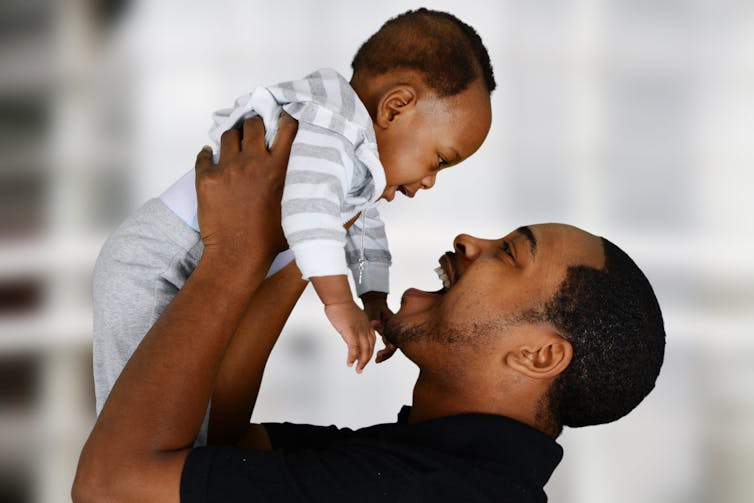Devotion: The Healing power of redemption and restoration
Scripture Reference
Job 42: 1-6, 10-17
1 Then Job replied to the Lord:
2 “I know that you can do anything,
and no one can stop you.
3 You asked, ‘Who is this that questions my wisdom with such ignorance?’
It is I—and I was talking about things I knew nothing about,
things far too wonderful for me.
4 You said, ‘Listen and I will speak!
I have some questions for you,
and you must answer them.’
5 I had only heard about you before,
but now I have seen you with my own eyes.
6 I take back everything I said,
and I sit in dust and ashes to show my repentance.”
10 When Job prayed for his friends, the Lord restored his fortunes. In fact, the Lord gave him twice as much as before! 11 Then all his brothers, sisters, and former friends came and feasted with him in his home. And they consoled him and comforted him because of all the trials the Lord had brought against him. And each of them brought him a gift of money[a] and a gold ring.
12 So the Lord blessed Job in the second half of his life even more than in the beginning. For now he had 14,000 sheep, 6,000 camels, 1,000 teams of oxen, and 1,000 female donkeys. 13 He also gave Job seven more sons and three more daughters. 14 He named his first daughter Jemimah, the second Keziah, and the third Keren-happuch. 15 In all the land no women were as lovely as the daughters of Job. And their father put them into his will along with their brothers.
16 Job lived 140 years after that, living to see four generations of his children and grandchildren. 17 Then he died, an old man who had lived a long, full life.
 Nobody likes to deal with pain. I am yet to meet someone who desires to sign up to a conference or a webinar that desires to explore the benefits of pain. It is not a norm in our society nor is it a comfortable topic.
Nobody likes to deal with pain. I am yet to meet someone who desires to sign up to a conference or a webinar that desires to explore the benefits of pain. It is not a norm in our society nor is it a comfortable topic.
Pain can be depressing. Depending on who you talk to, it can have a negative connotation to it. It has the power to connect you to people based on the experiences it brings, but also can isolate you from people because of the triggers it creates.
Job is always described in many sermons by preachers all over the world as the template of suffering. I believe as you read this, your thoughts are already coming up with a picture of what you think I will share regarding his experience. However, today, I want to show you a different aspect of Job that you never considered.
Job, was a man who honored and valued friendship. Joshua 42:10 reveals a hidden gem of divine perspective that we miss as Christians when we deal with pain. Job had gone through the agony of asking and inquiring of the Lord, so why he was dealing with this trial? His pain was public, everyone saw it, he was probably the talk of town and most likely a daily conversation at the dinner table in many homes.
Imagine how he must have felt, when his closest friends began inquiring of him if he was sure he had not done anything to bring this pain and harsh trial into his life. I believe that must have been painful. Think of the people who are close to you, who see your everyday life and understand your values, questioning you because your situation is so far-fetched and hopeless, that the only rational explanation that makes sense is, you are to blame for your pain.
Have you been judged? Have you dealt with a life situation that doesn’t make sense to those around you? Have the questions from those close to you, become like a sting to your soul because of the audacity they show, to inquire as to why you are where you are?
How did Job move from a place of such agony and frustration to a place of a divine turnaround? His restoration was was provoked by a decision he made.
- He willingly forgave his friends, and prayed for them. Job could have easily let his friends go and become bitter. I believe he had already experienced bitterness and there was nothing good that came out of it. He chose to seek the wellbeing of those he cared for by praying for them
- He took his eyes off of his life, and did what he knew was best, pray. Job always prayed for those he loved. Job 1:5 shares how he always rose up early to pray and consecrate his children in case they had sinned against God. The pain of the trial Job was going through, made him forget what he was great at, praying for others. When he turned back to it, and prayed for his friends, his heart was softened to view his life differently. If not checked, pain can isolate and bring such anger to your life, that repels those who care about you
When he did this, the Lord restored his fortunes, his brothers and sisters showed him sympathy and comforted him while giving him money and gifts.
This season you are dealing with, is not here to consume you. God can restore and redeem you, in a way that makes you heal from the pain you went through, and desire to live a long fruitful life. He is a prayer away. Be encouraged.
Prayer
Dear Father,
It is difficult for me to see the good in the pain I am going through right now. I have found myself angry with you, and wondering if you even love me. Thank you for Job, you never gave up on him, and I know you will not give up on me. Give me the strength to view my situation from a different perspective and beginning today, let my prayers be heartfelt, because I have the faith, that very soon, you will transform my life, and cause me to have joy and be comforted.
In Jesus Name
Amen


